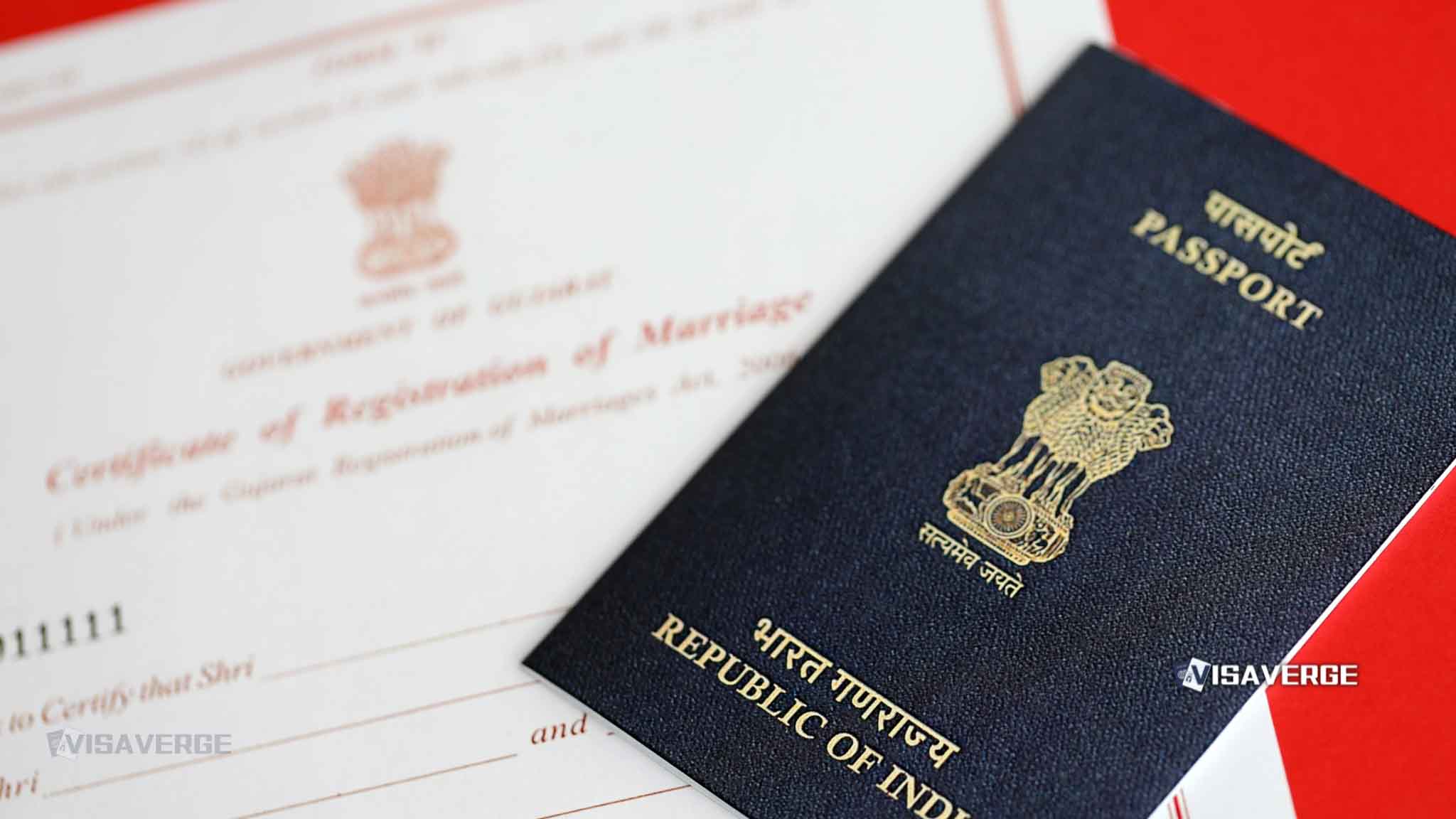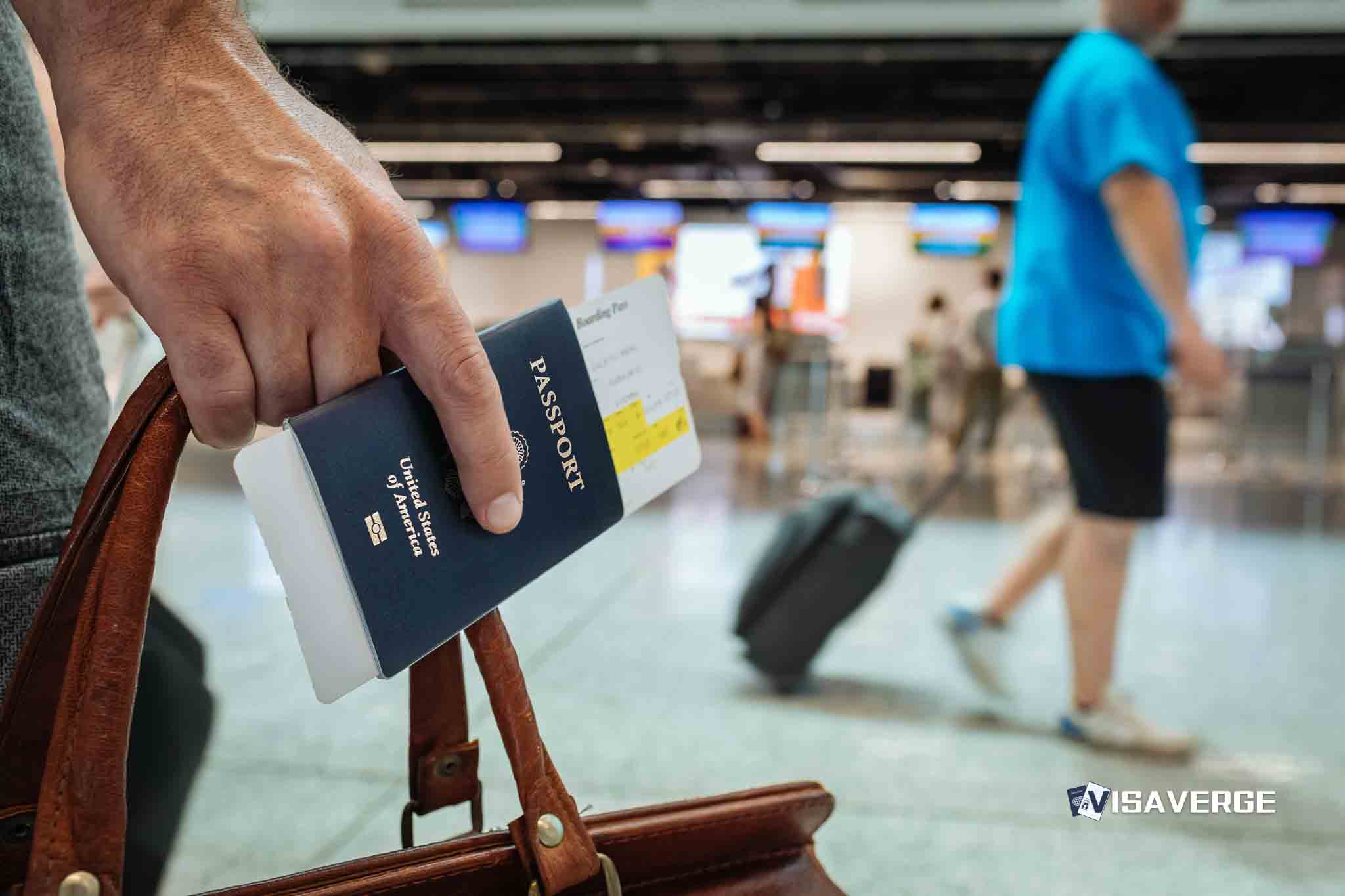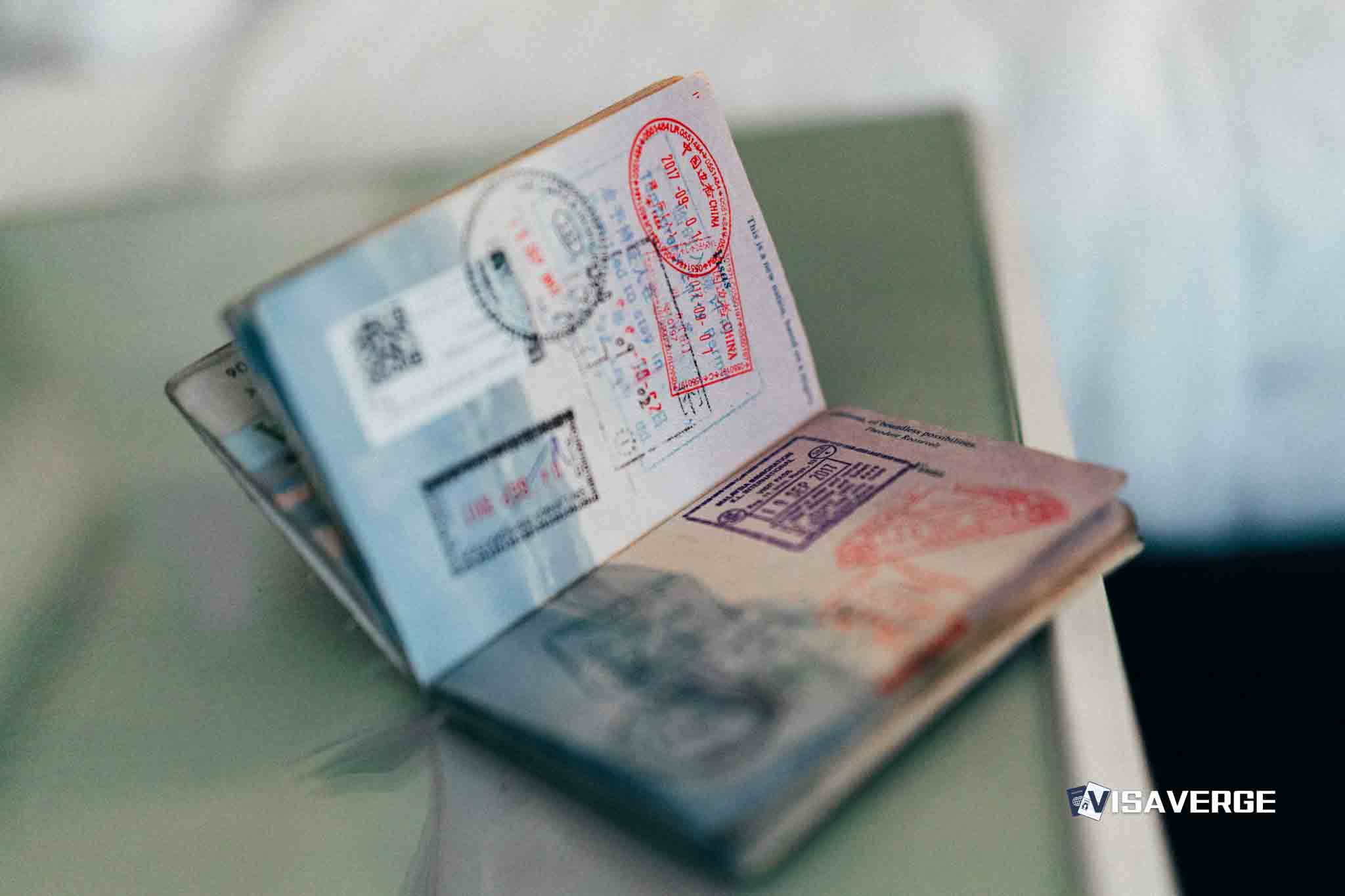Quick Glance:
- Overstaying a visa in the U.S. can lead to automatic visa cancellation and future inadmissibility for three to ten years.
- Returning to the U.S. after an overstay is possible but challenging, requiring a waiting period and potential waiver application.
- Steps for future travel include checking overstay records, understanding the waiver process, and preparing for visa interviews. Understanding the impact of an overstayed visa on future travel to the U.S. can often lead to a maze of questions and concerns. If you’ve found yourself in this situation, it’s crucial to know how past immigration decisions could affect your ability to visit the States in the future.
How Does an Overstayed Visa Affect Future U.S. Travel?
An overstayed visa occurs when someone remains in the United States beyond the expiration date of their visa without receiving an extension or change in visa status. It’s important to note that overstaying can lead to serious consequences, including being barred from re-entering the country for a certain period – typically three to ten years, depending on the length of the overstay.
Repercussions of Overstaying
If you’ve overstayed a visa, U.S. immigration authorities keep a record of this, which can affect future visa applications. Here’s what you might face:
- Automatic Visa Cancellation: Under U.S. law, a visa is automatically voided once the individual overstays.
- Inadmissibility: After overstaying, you might be deemed inadmissible. This means you may face a ban from re-entering the U.S. for three years if you overstayed by more than 180 days but less than one year. If the overstay was for more than a year, you could face a ten-year ban.
- Impact on Future Visas: Future visa applications are typically scrutinized more closely if you’ve overstayed previously.
Can You Travel to the U.S. After an Overstay?
Traveling back to the U.S. after an overstay is not impossible, but it’s certainly more challenging. Here are some points to consider:
- Period of Inadmissibility: Wait until the period of inadmissibility has passed before you attempt to return to the U.S.
- Waivers of Inadmissibility: In some instances, you can apply for a waiver of inadmissibility. This is a complicated process, and the success of your application depends on your reasons for seeking the waiver and your ties to your home country.
- Honesty on Applications: Always be honest when filling out visa applications. Misrepresentation can result in permanent inadmissibility.
- Consulting an Immigration Lawyer: If you’ve overstayed and wish to return, speaking with an immigration attorney can provide you with the personalized advice you need.
Steps You Can Take for Future Travel Plans
If you’re considering traveling to the U.S. after previously overstaying a visa, follow these steps:
- Check Your Overstay Record: Verify the dates of your previous stay to ascertain how long you overstayed and whether you’re subject to a re-entry ban.
- Understand the Waiver Process: Although obtaining a waiver is complex, understanding the eligibility and process can be beneficial. U.S. Citizenship and Immigration Services (USCIS) provides resources on inadmissibility and waivers.
- Prepare for Visa Interviews: Be ready to explain the circumstances surrounding your overstay during visa interviews. Show strong ties to your home country and a clear purpose for your intended visit to the U.S.
Additional Resources
Whether you’re planning to apply for a new visa or want to navigate the complexities of immigration law after an overstay, there are resources available to help. The U.S. Department of State’s Bureau of Consular Affairs is a reliable source for the latest visa information. USCIS also offers guidance on ineligibility waivers and visa applications.
Conclusion
Although a previous visa overstay can complicate future travel to the U.S., it’s not necessarily the end of the road. By understanding the implications, waiting out any period of inadmissibility, and considering a waiver if eligible, you can make informed decisions about your travel plans. Remember, immigration law can be complex, so seeking advice from an immigration lawyer is always wise to navigate the process successfully.
Traveling to a new country, especially the United States, should be an exciting prospect, not a daunting one. With the right approach and the right information, you can overcome past overstay hurdles and embark on your next U.S. adventure with confidence.
So there you have it, folks! Understanding the impact of an overstayed visa on future travel to the U.S. can be like navigating a complicated maze. But fear not! Check out visaverge.com for more friendly guidance on this topic and let’s turn those daunting hurdles into confident steps towards your next U.S. adventure! Happy travels!
FAQ’s to know:
FAQ 1: How does overstaying a visa affect future travel to the U.S.? Overstaying a visa can have serious consequences for future travel to the United States. It can lead to automatic visa cancellation, inadmissibility, and closer scrutiny of future visa applications. The length of the overstay determines the potential ban period, which can range from three to ten years.
FAQ 2: Can I travel to the U.S. after overstaying a visa? Yes, traveling to the U.S. after an overstay is possible but more challenging. It is important to wait until the period of inadmissibility has passed, consider applying for a waiver of inadmissibility, be honest on visa applications, and consult an immigration lawyer for personalized advice.
FAQ 3: What steps should I take for future travel plans after overstaying a visa? To prepare for future travel plans to the U.S. after overstaying a visa, follow these steps: verify your overstay record, understand the waiver process for inadmissibility, and be well-prepared for visa interviews by explaining the circumstances of your overstay, showcasing strong ties to your home country, and having a clear purpose for your intended visit.
Remember, accurate and honest information, as well as consultation with an immigration lawyer, are crucial to navigating the complexities of immigration law successfully.
What did you learn? Answer below to know:
- True/False: Overstaying a visa in the United States can result in automatic visa cancellation.
- What is the typical period of inadmissibility for individuals who overstay their visa by more than 180 days but less than one year?
- What should individuals do before attempting to travel back to the U.S. after an overstay?
Did you Know?
Did You Know?
- The Economic Impact: Immigration has a substantial impact on a country’s economy. According to a report by the National Bureau of Economic Research, immigration actually boosts the economy by increasing productivity and reducing the prices of goods and services.
-
The United States as a Nation of Immigrants: The United States has a rich history of immigration, with immigrants playing a vital role in shaping the country. Did you know that every American has an immigrant story? Whether their ancestors arrived on the Mayflower or came through Ellis Island, the vast majority of Americans trace their heritage back to immigrants.
-
The Immigration Act of 1965: The Immigration Act of 1965 dramatically changed the demographics of the United States. Before the act, immigration was primarily limited to Europe. However, the act abolished national origin quotas and opened up immigration to people from all over the world, leading to a more diverse population.
-
The Concept of “Brain Drain”: “Brain drain” refers to the emigration of highly skilled or educated individuals from one country to another. This phenomenon has a significant impact on developing countries, as they often lose their brightest minds to more prosperous countries. For example, many doctors, engineers, and scientists from developing countries choose to migrate to countries like the United States, leading to a shortage of skilled professionals in their home countries.
-
Refugees and Asylum Seekers: According to the United Nations, there are currently over 26 million refugees worldwide, with the majority coming from countries like Syria, Afghanistan, and South Sudan. Refugees are individuals who have fled their home countries due to violence, persecution, or natural disasters, seeking safety and protection in another country. Asylum seekers are individuals who have applied for protection in a different country but have not yet received a decision on their refugee status.
-
Diversity Visa Lottery: The United States Diversity Visa Lottery, also known as the Green Card Lottery, is a program that offers a chance for individuals from countries with low rates of immigration to the United States to apply for permanent residency. The program randomly selects 55,000 winners each year, granting them the opportunity to become permanent residents of the United States.
-
Dreamers – DACA: The Deferred Action for Childhood Arrivals (DACA) program was established in 2012 to protect undocumented immigrants who were brought to the United States as children. These individuals, often referred to as “Dreamers,” are granted protection from deportation and provided with work permits, allowing them to contribute to society. However, the program remains a controversial topic in immigration policy.
-
Brain Gain: While brain drain is a concern for developing countries, “brain gain” refers to the positive effects of skilled immigrants on the host country. Skilled immigrants often bring valuable knowledge, innovation, and entrepreneurship to their new home, contributing to economic growth and technological advancements.
-
Naturalization: Naturalization is the process by which immigrants become citizens of a new country. In the United States, immigrants must meet various requirements, including a period of lawful permanent residency, knowledge of English and U.S. history, and good moral character, to become naturalized citizens.
-
Unaccompanied Minors: Many children and teenagers migrate to other countries without their parents or legal guardians, seeking safety or a better life. These unaccompanied minors often face significant challenges, including exploitation, violence, and limited access to education and healthcare. The protection and welfare of these vulnerable individuals is a pressing issue in immigration policy.
Remember, immigration is a complex topic, and these facts only scratch the surface. Exploring further will unveil even more fascinating aspects of immigration and enhance your understanding of this important issue.
Learn Today: Key Terms Explained
Glossary or Definitions
1. Overstay: The act of staying in a country beyond the expiration date of a visa, without receiving an extension or a change in visa status.
2. Visa: A document issued by a country’s government that allows a foreign national to enter and temporarily stay in that country.
3. Automatic Visa Cancellation: Under U.S. law, a visa is automatically voided or canceled once an individual overstays their visa.
4. Inadmissibility: The status of being deemed ineligible to enter or re-enter a country. In the context of overstaying a visa in the United States, inadmissibility can result in a ban from re-entry for a certain period of time.
5. Waiver: A request or application made to waive or overcome an immigration restriction or inadmissibility. It is a process by which an individual seeks permission to enter or stay in a country despite being deemed inadmissible.
6. Scrutinize: To carefully examine or review something with attention to detail or suspicion. In the context of immigration, future visa applications may be subject to closer scrutiny if an individual has previously overstayed a visa.
7. Record of Overstay: Documentation kept by immigration authorities that provides information on an individual’s past overstays, which can have an impact on future visa applications and travel plans.
8. Re-entry ban: A period during which an individual is not allowed to re-enter a country due to overstaying a visa. The length of the ban depends on the duration of the overstay.
9. Period of Inadmissibility: The time period an individual must wait before being eligible to re-enter a country after overstaying a visa.
10. Misrepresentation: Providing false or misleading information on visa applications or during immigration processes, which can lead to permanent inadmissibility.
11. Immigration Attorney: A lawyer who specializes in immigration law and provides legal advice and assistance to individuals navigating immigration processes.
12. U.S. Department of State’s Bureau of Consular Affairs: A division of the U.S. Department of State that handles visa information, applications, and consular services for individuals outside the United States.
13. U.S. Citizenship and Immigration Services (USCIS): The government agency responsible for overseeing lawful immigration to the United States, including processing visa applications and providing information on ineligibility waivers.
14. Eligibility: Meeting the necessary requirements or criteria to be considered qualified for a specific benefit or status, such as being eligible for a waiver of inadmissibility.
15. Personalized Advice: Guidance or recommendations tailored to an individual’s specific situation or circumstances.
16. Bureau of Consular Affairs: A division within the U.S. Department of State responsible for managing the visa application process and providing consular services to individuals outside the United States.
17. Consultation: A meeting or discussion with an immigration lawyer or expert to seek advice, guidance, or clarification on immigration matters.
18. Hurdles: Obstacles or challenges that need to be overcome when navigating immigration processes or dealing with the consequences of an overstayed visa.
19. U.S. Adventure: Refers to visiting or exploring the United States for various purposes, such as tourism, education, or business.
20. Immigration Law: The laws and regulations that govern the entry, stay, and exit of foreign nationals in a country, including processes related to visas, overstays, and inadmissibility.
Additional Resources:
21. U.S. Department of State: The federal agency responsible for international relations and diplomacy of the United States, which includes issuing passports, consular services, and visa information.
22. Resources: Information, materials, or tools available to help individuals understand and navigate immigration processes, including official government websites, guides, and legal advice.














